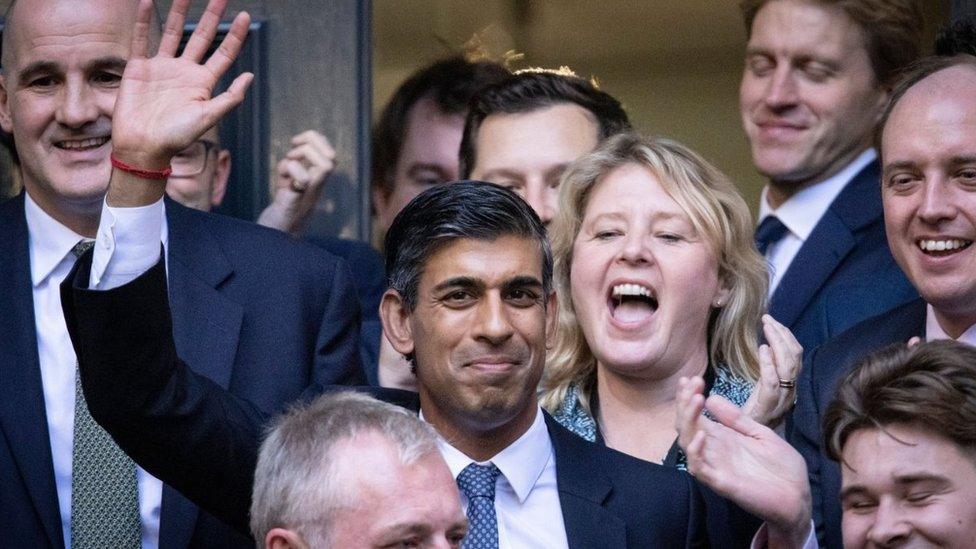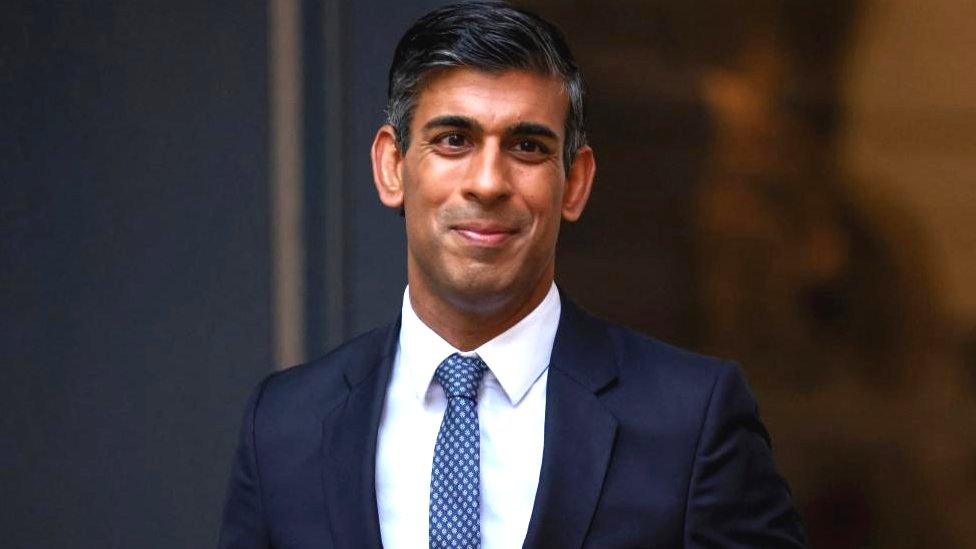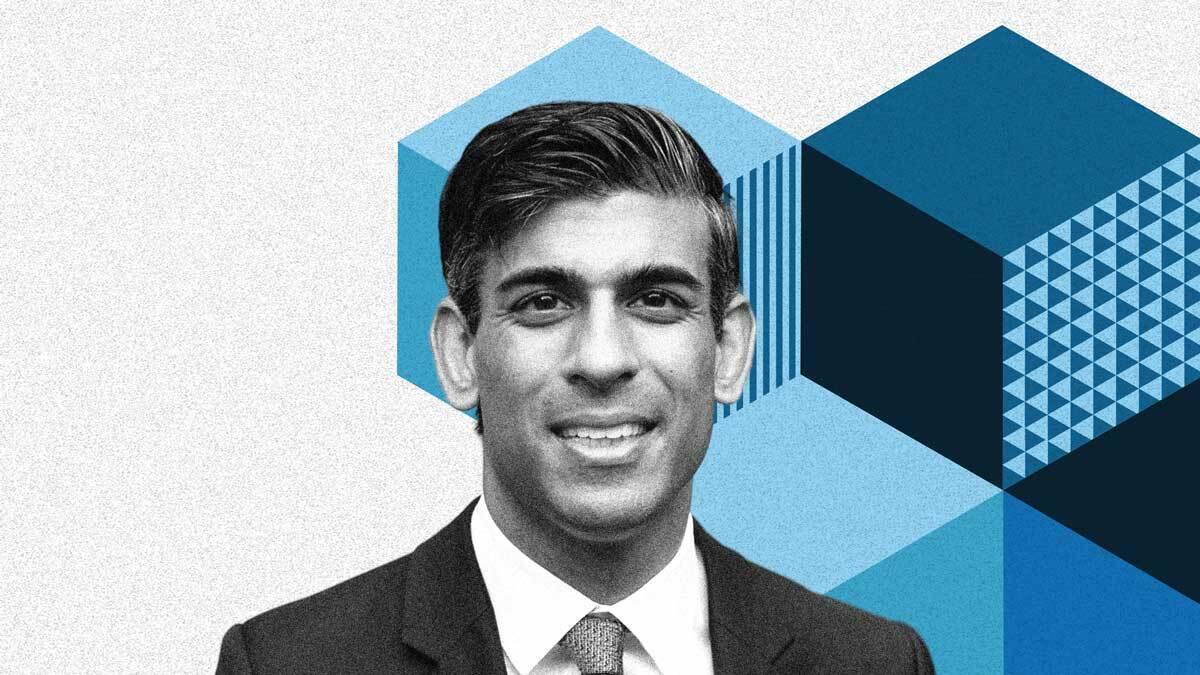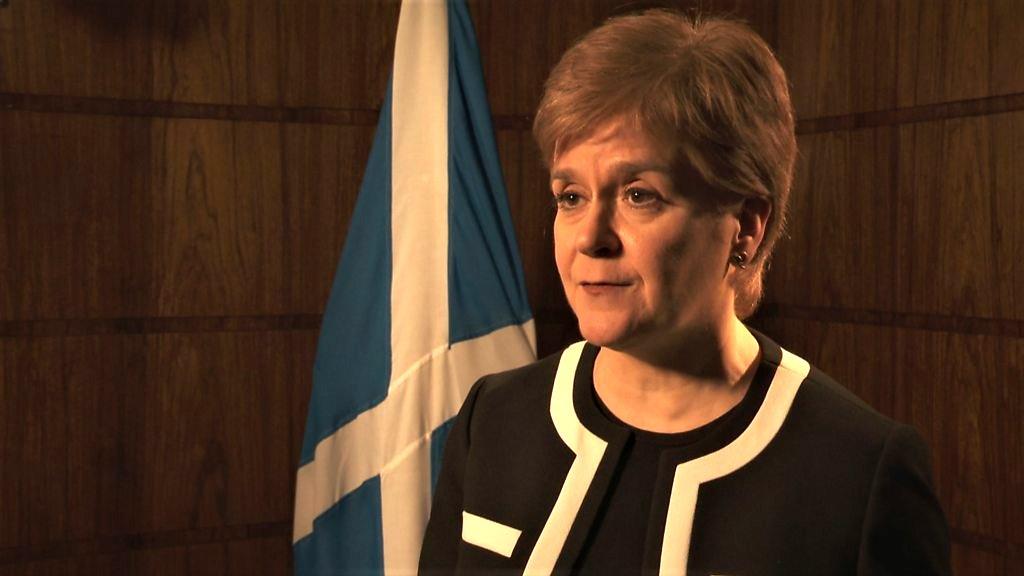What can we expect from Rishi Sunak as prime minister?
- Published
- comments

The BBC finds itself criticised now and again for broadcasting too many repeats.
So perhaps I should apologise, for it's just seven weeks to the day since I popped up on the telly and radio to look ahead to a new prime minister assuming office.
Leading a fractious party, at a time of economic gloom, a war in Europe and without a mandate to call their own from the electorate.
And here we go again.
Except this time Rishi Sunak inherits all this as well as the extra challenge of the fallout of the insurrection against his predecessor Liz Truss.
Senior figures in government don't dispute that her vision, its near instant collapse and its consequences left the UK an international laughing stock.
So enter the latest new prime minister.
The fifth in a little over six years.
The third of this year.
The third in two months.
I know people like me keep wanging on about these kind of numbers.
We do because it is astonishing and utterly unprecedented.
So what can we expect now?
We heard much from Mr Sunak over the summer when he was standing for the leadership the first time around - where his key message was that Liz Truss's economic prospectus would be a disaster.
On that, he will be able to claim vindication.
But since that campaign much has changed - not least because of the consequences of Ms Truss's set of policies over the last few months.
And one of the many oddities of the last few weeks was a leadership race done at breakneck speed - start to finish in four days - in which we didn't hear a thing in public from two of the three wannabes.
Penny Mordaunt did give an interview to Laura Kuenssberg - but committed to little.
Boris Johnson said nothing.
And Mr Sunak said no more than the contents of a social media post saying he was in the running.
He has since addressed activists at Conservative HQ, but reporters weren't allowed in to ask questions.
So much is yet to be revealed about how he'll govern and what his priorities will be.
His first big public moment will be at the recently much-used Downing Street lectern at just after 11:30 BST.
It's the moment when all new prime ministers talk to the country and talk to the archive - the moment that will get played back weeks, months or years later when they leave and will be used to benchmark a point in history, if they're lucky.
Mr Sunak has already emphasised the importance of "integrity" and "humility" - which sounds like he's trying to draw a contrast between his approach and how many perceived, respectively, his two (very) immediate predecessors.
And then it'll be time to shape a government in his own image, while seeking to address the criticism levelled by many at Ms Truss for building an administration that froze out almost all supporters of Mr Sunak.
Another thing being emphasised is the need for stability.
Little wonder after the last few weeks.
But how does he achieve both of these things at once?
Were he to change home secretary, we'd have our third in a week.
Were he to change chancellor, we'd have our third in a few weeks.
Then there is that economic statement currently in the diary for next Monday, 31 October.
Jeremy Hunt, the current chancellor, has said to prepare for very, very difficult choices.
That means spending cuts compared to what was originally planned.
Tricky decisions with profound consequences, and many that are not likely to prove popular.
And this for a party blamed by many for what's happened in the last few months, and one that is currently languishing in a desperate spot in the opinion polls.
Mr Sunak has promised his MPs that he will provide what he called "stable, competent government".
That might appear a modest ambition.
But it's likely to be the necessary building block from which he can begin an attempt to tackle the colossal challenges the country faces.
- Published25 October 2022

- Published5 July 2024

- Published24 October 2022

